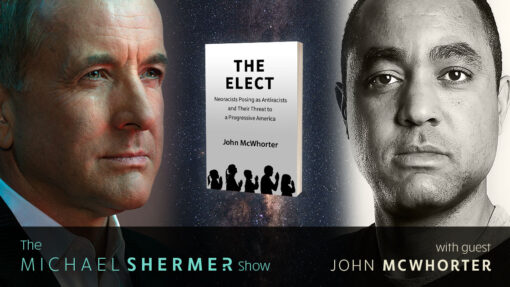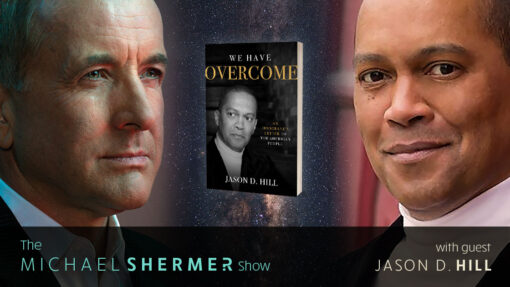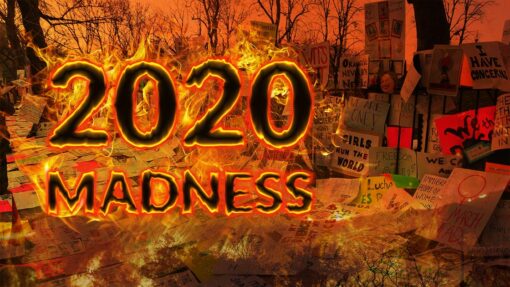In episode 187, Michael speaks with Robert Cialdini — New York Times bestselling author of Pre-Suasion and the seminal expert in the fields of influence and persuasion — about the psychology of why people say yes and how to apply these insights ethically in business and everyday settings. PLUS, the newest issue of Skeptic magazine (26.2: Drug Trips & Reality) is now available in print and digital formats.
Tags
-
browse by topic
antiracism
eSkeptic for June 8, 2021
eSkeptic for March 16, 2021
In episode 165 of The Michael Shermer Show, Dr. Shermer speaks with John McWhorter about his new online book on how the antiracism movement poses a threat to progressive America. Shermer and McWhorter discuss: antiracism as a religion; the 3 waves of antiracism; the antiracism trinity: Ta-Nehisi Coates, Robin DiAngelo, Ibram X. Kendi; white fragility; Black Lives Matter; systemic racism (incarceration rates, housing, jobs, income, etc.); reparations; George Floyd, Tony Timpa and police violence; the N-word and language as violence;…
John McWhorter — The Elect: Neoracists Posing as Antiracists and their Threat to a Progressive America

In episode 165 of The Michael Shermer Show, Dr. Shermer speaks with John McWhorter about his new online book on how the antiracism movement poses a threat to progressive America. Shermer and McWhorter discuss: antiracism as a religion; the 3 waves of antiracism; the antiracism trinity: Ta-Nehisi Coates, Robin DiAngelo, Ibram X. Kendi; white fragility; Black Lives Matter; systemic racism (incarceration rates, housing, jobs, income, etc.); reparations; George Floyd, Tony Timpa and police violence; the N-word and language as violence;…
Jason D. Hill — We Have Overcome: An Immigrant’s Letter to The American People

In episode 158 Michael Shermer speaks with Jason D. Hill, a black immigrant from Jamaica, about his eloquent appreciation of the American Dream, and why his adopted nation remains the most noble experiment in enabling the pursuit of happiness.
eSkeptic for February 20, 2021
In episode 158 Michael Shermer speaks with Jason D. Hill, a black immigrant from Jamaica, about his eloquent appreciation of the American Dream, and why his adopted nation remains the most noble experiment in enabling the pursuit of happiness. PLUS: In the 7th CUPES report, we ask: across the political spectrum, how knowledgeable are people when it comes to the available data on fatal police shootings of Black Americans?
eSkeptic for December 29, 2020
In Science Salon 149, the last of 2020, Dr. Michael Shermer reflects on the many issues we have witnessed this year: Black Live Matter, class conflicts, income inequality, lack of education, anti-Semitism, far-left illiberalism, far-right xenophobia and bigotry, and religious indoctrination. He then reads an expanded version of his essay The After Time: The Future of Civilization After COVID-19.
The After Time: The Future of Civilization After COVID-19

In Science Salon 149, the last of 2020, Dr. Michael Shermer reflects on the many issues we have witnessed this year: Black Live Matter, class conflicts, income inequality, lack of education, anti-Semitism, far-left illiberalism, far-right xenophobia and bigotry, and religious indoctrination. He then reads an expanded version of his essay The After Time: The Future of Civilization After COVID-19.
Shelby Steele — Shame: How America’s Past Sins Have Polarized Our Country & the film What Killed Michael Brown?

The United States today is hopelessly polarized; the political Right and Left have hardened into rigid and deeply antagonistic camps, preventing any sort of progress. Amid the bickering and inertia, the promise of the 1960s—when we came together as a nation to fight for equality and universal justice—remains unfulfilled. Shermer and Steele discuss: what has changed in race relations in America in the past 30 years, and why “The promised land guarantees nothing. It is only an opportunity, not a…
eSkeptic for October 20, 2020
In Science Salon podcast # 139, Michael Shermer speaks with Shelby Steele about his book Shame: How America’s Past Sins Have Polarized Our Country and about his new film What Killed Michael Brown?
Douglas Murray — The Madness of 2020

In this special episode of the Science Salon Podcast, Michael Shermer catches up with Douglas Murray one year after the publication of his bestselling book The Madness of Crowds, now out in paperback, with an Afterword update on all that has happened the past year, one of the most momentous in living memory.
eSkeptic for October 16, 2020
In this special episode of the Science Salon Podcast, Michael Shermer catches up with Douglas Murray one year after the publication of his bestselling book The Madness of Crowds, now out in paperback, with an Afterword update on all that has happened the past year, one of the most momentous in living memory.
eSkeptic for September 25, 2020

Agenda-driven diversity and antiracism training programs are everywhere, but do they work in creating an inclusive culture? In our current climate of high racial tensions and deadlocked civil discourse, Dr. Mona Sue Weissmark asks “Is there a more effective way to break down these conversation barriers in order to answer some of the most difficult, polarizing questions that we face today?” PLUS, given the rising level of social and economic unrest seen in 2020, we announce a new study coming…
Do Diversity Training Programs Work? Creating a Culture of Inclusion through Scientific Reasoning

Agenda-driven diversity and antiracism training programs are everywhere, but do they work in creating an inclusive culture? In our current climate of high racial tensions and deadlocked civil discourse, Dr. Mona Sue Weissmark asks “Is there a more effective way to break down these conversation barriers in order to answer some of the most difficult, polarizing questions that we face today?”
SKEPTIC App
Whether at home or on the go, the SKEPTIC App is the easiest way to read your favorite articles. Within the app, users can purchase the current issue and back issues. Download the app today and get a 30-day free trial subscription.










